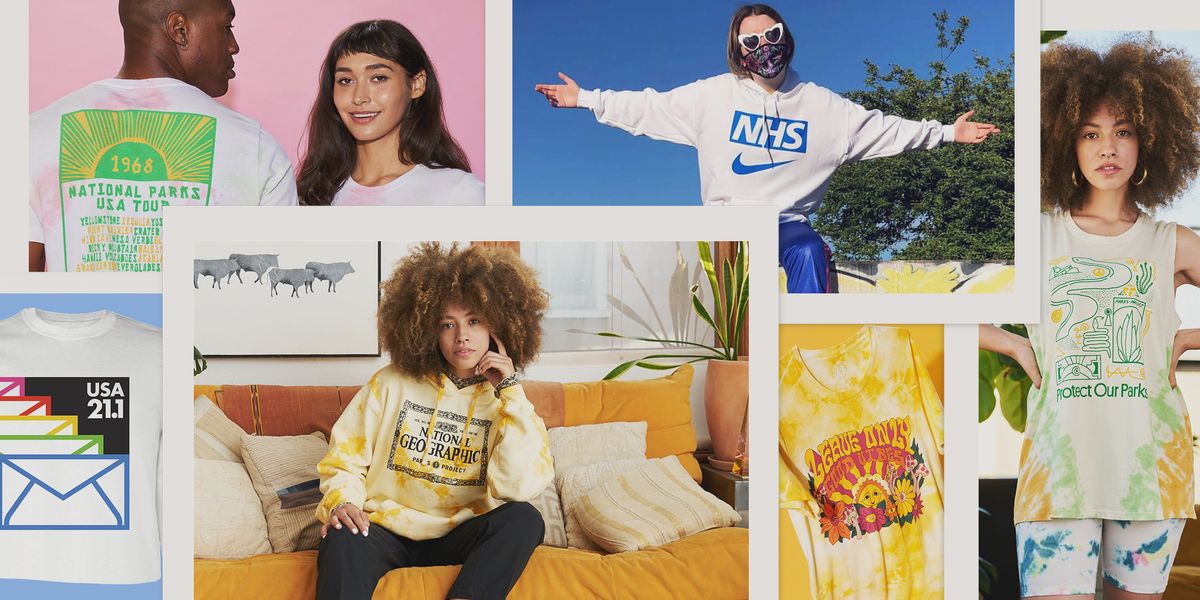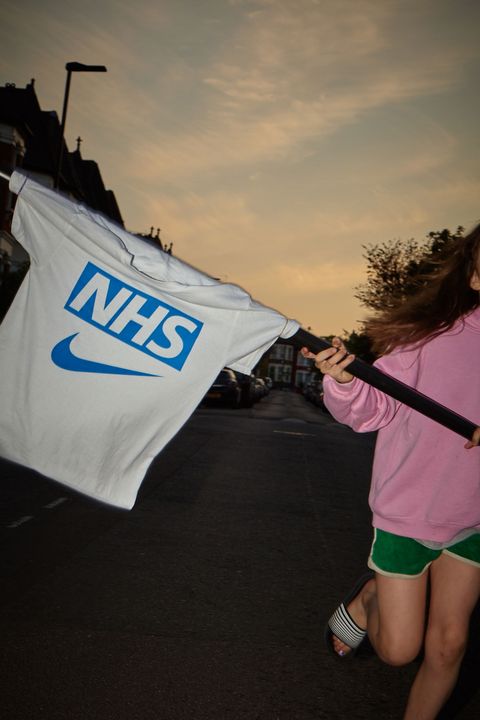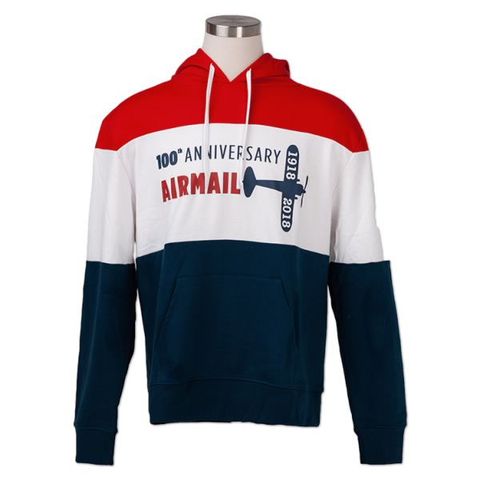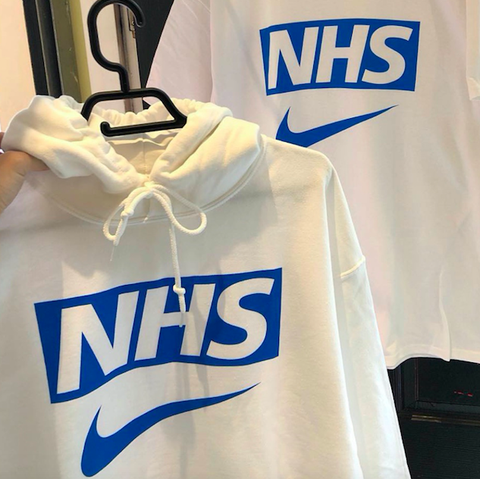Products You May Like
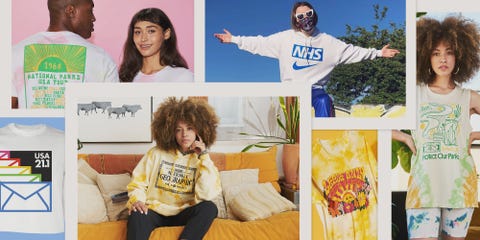
Courtesy of USPS, Parks Project, and @ClaraBelleUK
Style Points is a new weekly column about how fashion intersects with the wider world.
Merch, like so many things, comes in waves. While the right band T-shirt has always been reliably cool, music merch’s fashion cred arguably crested with Cali Thornhill DeWitt’s T-shirts for Kanye West’s The Life of Pablo album. Their influential lettering dominated 2016—and spurred an arms race between musicians to see who could deliver the most sought-after drops. Then the craze expanded to include literary merch (The New Yorker and Paris Review totes, and, for the true heads, the Riverhead Books tote), media merch (Sacai’s collaboration with the New York Times) political merch (culminating in Balenciaga’s riff on the Bernie Sanders logo), food merch (Zabar’s dad cap, anyone?), and even corporate merch (Vetements’ DHL shirts; Balenciaga’s Kering sweatshirts touting the fashion house’s parent company.)
Next up in the merch lottery, it seems, is the once-dismal public sector. Amid reports that the post office could run out of money by next year, the USPS’s viral crop top was the breakout star of a New York Times article about people trying to help preserve the institution via its merch store. (Sorry, philatelic hypebeasts: It’s now sold out.) The Parks Project is a for-profit business that makes a line of National Parks sweatshirts that benefit conservancy organizations and National Parks projects. Some even come in up-to-the-minute tie dye. A spokesperson said that the line has given back over $850,000 to park projects since it began.
And in the UK, celebrating the lifesaving efforts of the National Health Services is now in fashion. The London design collective Sports Banger turned a riff on the logo into a hit T-shirt and sweatshirt style that debuted in 2015; its popularity has only grown in recent months, becoming ubiquitous on cool Londoners on Instagram. Designer Jonny Banger was moved to create it because of his personal history with the NHS: his mother and grandmother were both nurses and his mother, who passed away when he was 15, received care from the NHS for leukemia. The funds he raises from selling the T-shirts and sweatshirts go to providing healthy food and fresh juices for health-care workers and people in his community. “I wanted to make sure my work was attached to action,” says Banger. He has since received thank-you letters from doctors, nurses and patients; he also says the T-shirt has been an unexpected conversation starter everywhere, from a rave to a bus ride, as strangers share their own experiences with the NHS.
All three institutions may be well-loved, but they were hardly considered cutting-edge until recently. (As a person who has maintained a stamp collection for nearly three decades, I can attest to that.) So what changed? For one thing, this new wave of merch doesn’t feel exclusionary in the way that a designer logo might. When so many are reeling from economic devastation and grappling with health issues, rocking a huge brand name could feel tone-deaf—unless, of course, it’s one that’s literally saving lives, conserving land, or enabling us to, you know, send mail.
This content is imported from Instagram. You may be able to find the same content in another format, or you may be able to find more information, at their web site.
Banger points to the authenticity behind the clothing—and not in the contemporary, focus-grouped sense of the word. “It’s the people working in these institutions that keep the country going, not hype street wear brands. People want something real,” he says, “and T-shirts have always been a vehicle for messages of the people.” There may also be an element of “Big Yellow Taxi”-itis as well, in that we didn’t know what we had until it was threatened. The fact that we have to buy merch to “save” these tax-funded institutions is another paradox altogether; in an ideal society, of course, we might have fewer statement crop tops and more of a social safety net.
This content is imported from Instagram. You may be able to find the same content in another format, or you may be able to find more information, at their web site.
This content is imported from Twitter. You may be able to find the same content in another format, or you may be able to find more information, at their web site.
Banger is quick to acknowledge that a logo can only accomplish so much. He quotes Katherine Hamnett, the designer behind so many legendary slogan tees, including “Choose Life” and “58% DON’T WANT PERSHING”: “T-shirts don’t change the world—and they can even cause inaction.” Especially in an an election year, it’s a potent reminder that suiting up is only the beginning of the battle.
This content is created and maintained by a third party, and imported onto this page to help users provide their email addresses. You may be able to find more information about this and similar content at piano.io
